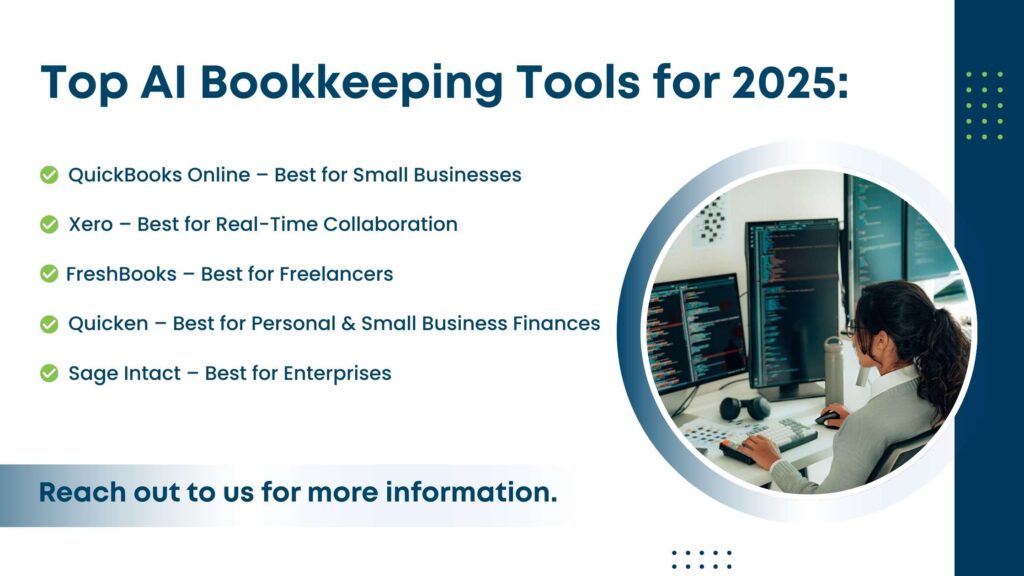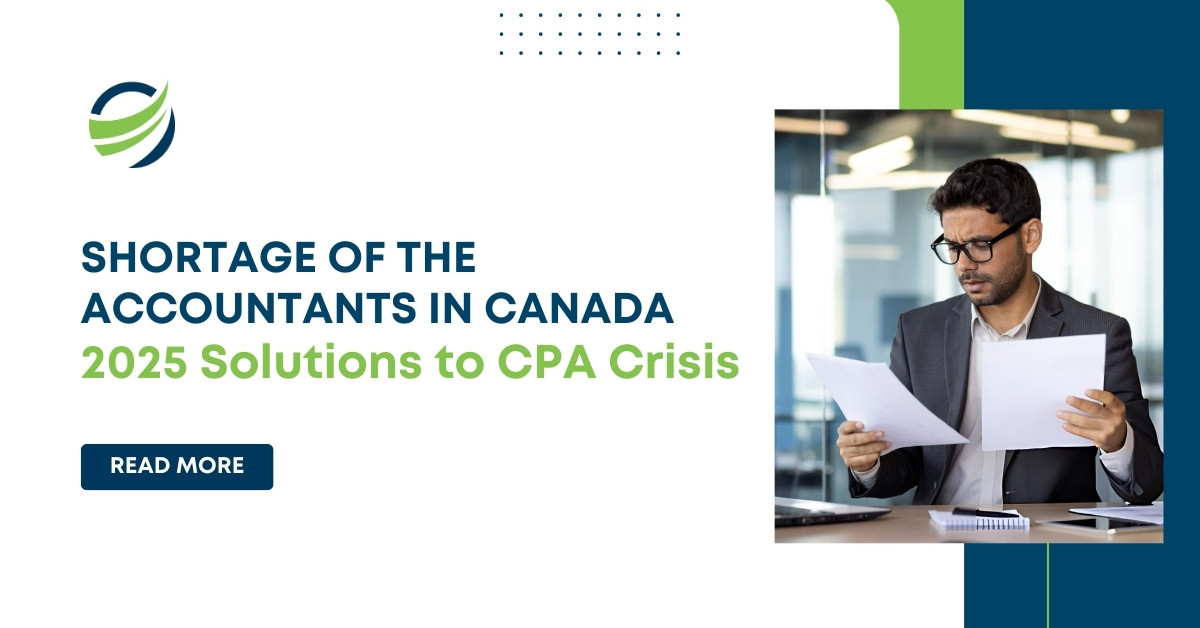Shortage of Accountants in Canada 2025
In April 2024, BNN Bloomberg reported that 90% of finance and accounting hiring managers in Canada were struggling to fill vacant positions due to a shortage of accountants. Businesses across industries are feeling the pressure, with financial processes slowing down, compliance risks increasing, and burnout among existing accounting professionals becoming more common. At the same time, CPA Canada has raised concerns about declining enrollments in accounting programs, warning that the accountant shortage 2025 could have long-term consequences for the country’s financial stability.
This crisis isn’t just about job vacancies—it’s about the future of Canada’s economy. With more CPAs retiring than entering the field, the shortage of accountants in Canada is reaching a breaking point. What’s causing this shortage, and more importantly, how can it be addressed? In this article, we’ll explore the root causes of the CPA shortage Canada is facing, its far-reaching impact, and the steps that can be taken to secure the future of the profession.
The State of the Accounting Profession in Canada
The demand for skilled accountants in Canada has never been higher, yet finding qualified professionals is becoming increasingly difficult. The reasons behind this shortage of accountants in Canada include:
- Demographic shifts:
A significant number of CPAs are reaching retirement age, with fewer young professionals choosing to enter the field. - Declining enrollment in accounting programs:
Universities and colleges are reporting fewer students enrolling in accounting degrees, partly due to the perception that the profession is rigid and lacks innovation. - Changing career preferences:
Many young professionals are opting for careers in technology, finance, or data analytics, which offer higher salaries and more flexible work environments. - Rigorous CPA certification requirements:
The long and expensive certification process deters many from pursuing a CPA designation.
Adding to this crisis is the accounting professor shortage in Canada’s universities. Fewer qualified educators mean fewer students being trained, creating a ripple effect that further worsens the shortage.
The Impact of the CPA Shortage in Canada
A shortage of accountants in Canada is not just a problem for businesses looking to fill vacancies—it has widespread economic consequences. Here’s how it’s affecting different sectors:
1. Business Operations and Compliance
With a third-party solution like outsourcing specific accounting tasks, businesses can keep their operations running smoothly, and many are also relying on outsourced payroll in Canada to handle compliance-heavy functions efficiently. Whether it’s bookkeeping, tax filings, or financial reporting, partnering with external firms helps businesses manage the workload without sacrificing accuracy or efficiency..
2. Increased Workloads and Burnout
Current accounting professionals are being stretched thin, leading to burnout and job dissatisfaction. This further contributes to the crisis, as many CPAs are leaving traditional accounting roles for less stressful career paths.
3. Tax and Audit Challenges
A lack of qualified accountants means higher risks of errors in tax filings, audits, and compliance reports. Businesses struggling with accounting resources may face increased scrutiny from tax authorities, leading to penalties and financial losses.
4. Economic Consequences
Canada’s economy relies on a well-functioning financial and accounting sector. If businesses cannot access professional accounting services, investment decisions, tax revenues, and financial transparency suffer. The CPA shortage Canada is facing could slow economic growth if left unaddressed.

Solutions to the Accountant Shortage in Canada
Addressing the accountant shortage 2025 requires a multi-faceted approach involving government, educational institutions, businesses, and professional organisations. Here are some key solutions:
1. Encouraging More Students to Pursue Accounting
One of the most effective ways to counteract the shortage accountants crisis is to make the profession more attractive to students:
- Scholarship and funding programs: Providing financial support for accounting students can help ease the burden of tuition fees and certification costs. In 2023, the Ontario government announced an additional $15 million in funding for post-secondary accounting programs to address declining enrollment numbers.
- Redesigning accounting programs: Universities should integrate modern business skills, AI, and data analytics into accounting courses to make the field more appealing to younger generations. The University of British Columbia recently introduced an AI and automation module in its accounting curriculum to attract tech-savvy students.
- Marketing campaigns: Promoting accounting as a rewarding and dynamic career can help change outdated perceptions. CPA Canada has launched national awareness campaigns showcasing the diverse career opportunities within accounting.
2. Addressing the Accounting Professor Shortage
The accounting professor shortage exacerbates the problem by reducing the number of qualified graduates entering the workforce. Universities must:
- Offer better incentives and salaries for professors to attract more educators to accounting programs. According to a 2024 survey by the Canadian Accounting Faculty Association, the lack of competitive salaries has led to a 12% decline in full-time accounting professors nationwide.
- Partner with accounting firms to bring industry professionals into academia as part-time instructors. The University of Toronto has successfully implemented a guest lecturer program with Big Four accounting firms to bridge this gap.
- Increase government funding for accounting education and research to ensure more students have access to quality training.
3. Supporting CPA Candidates
The CPA certification process is rigorous, but steps can be taken to make it more accessible:
- Reducing financial barriers: Companies and professional organisations can provide financial aid or reimbursement programs for CPA candidates. In 2024, CPA Ontario announced an initiative offering financial support of up to $5,000 for candidates facing economic hardships.
- Flexible training and exam structures: Introducing more online learning options and modular exams can help working professionals complete the CPA program at their own pace.
4. Leveraging Technology and Outsourcing
While technology cannot fully replace accountants, automation and AI can help alleviate some of the workload:
- AI-powered accounting software: Businesses can use AI-driven financial management tools to handle routine tasks, allowing accountants to focus on complex strategic work. A 2023 report from Deloitte found that 60% of Canadian firms have already implemented AI in their accounting processes to mitigate the impact of the CPA shortage in Canada.
- Outsourcing accounting tasks:
Some businesses may find relief by using external support services to handle specific accounting functions, both domestically and internationally. By outsourcing non-core tasks, companies can free up their in-house teams to focus on more strategic work. Partnering with an outsourced bookkeeper also helps reduce costs while ensuring accuracy and efficiency.
5. Improving Work-Life Balance and Compensation
To retain existing accountants and attract new talent, firms must offer more competitive work environments:
- Better compensation:
Salaries for accountants need to remain competitive to prevent professionals from leaving for higher-paying roles in other industries. A 2024 report by Robert Half found that average CPA salaries in Canada have increased by 8% in the last year due to heightened demand. - Flexible work arrangements:
Allowing remote work and flexible hours can make accounting jobs more appealing. - Reducing burnout:
Providing support for mental health, reducing excessive workloads, and fostering a supportive workplace culture can help prevent accountants from leaving the profession.
The Future of Accounting in Canada
Despite current challenges, the future of accounting in Canada is evolving with promising solutions. Universities are addressing the accounting professor shortage by introducing flexible teaching pathways, while initiatives like CPA Ontario’s bursaries and the Indigenous Learners in Accounting program are making CPA certification more accessible.
Firms are adopting outsourced accounting services as a strategic solution, delegating routine accounting tasks to specialised firms to ease workloads and maintain efficiency.
Additionally, companies are enhancing job satisfaction through flexible work arrangements and AI-driven automation, allowing accountants to focus on higher-value tasks.
With ongoing collaboration between industry leaders, educators, and policymakers, Canada is shaping a modern, resilient accounting profession ready for the future.
Key Takeaways
- The Accountant Shortage in Canada is a growing concern, with increased demand for skilled professionals and a declining supply due to factors like demographic shifts, declining enrollments, and a CPA shortage Canada.
- Strategic Solutions such as encouraging more students to pursue accounting, addressing the accounting professor shortage, and making CPA certification more accessible are essential to tackling this crisis.
- Outsourcing can be a valuable tool for businesses to manage their accounting needs, especially for routine tasks, allowing in-house accountants to focus on strategic, high-impact work.
- Leveraging Technology like AI-powered accounting software and flexible work arrangements can help alleviate some of the pressures on accounting professionals, leading to a more efficient and balanced work environment.
- Collaboration between educational institutions, government bodies, and businesses will be crucial in ensuring that the accounting profession in Canada remains strong, resilient, and well-equipped to meet the future demands of the economy.
By embracing these solutions, Canada can turn the shortage accountants challenge into an opportunity for innovation, growth, and a more sustainable accounting profession.





